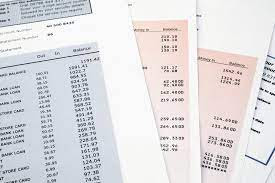More efforts have been put in by banks to encourage clients to switch to electronic bank statements. A push by financial institutions to switch customers to digital statements from paper, the traditional hard-copy version may work better for some people, numerous new reports still confirm this.
For more information about getting bank statements
Website: www.voyagewatchers.com
WhatsApp ..... +1(937)203-0970
E-mail .... voyagewatcher@gmail.com
WhatsApp ..... +1(937)203-0970
Particularly, older, less educated and lower-income consumers and clients from developing countries who may lack fast Internet connections at home may benefit from paper statements, the new report from the National Consumer Law Center says.
“There’s a sense that everyone’s connected, and paper is old-fashioned,” said the manager of voyagewatch, a lawyer at the center and the primary author of the report. But, she said, significant gaps in Internet access may hinder the ability of some consumers to use digital statements and prefer rather paper bank statements or printed bank statements.
More than half of Americans 65 and older lack home broadband, as do 59 percent of adults with annual incomes under $20,000, according to findings in December from the Pew Research Center.
Even consumers who know the Internet may simply prefer paper, because statement notifications can easily be overlooked in a deluge of email, Ms. Wu said. She cited an instance described in the report of a lawyer who used a medical credit card but missed email notifications that a billing statement was waiting and payment was due. She did not pay, and the card was canceled, damaging her credit.
Some research shows that individual preferences for paper or digital options vary, depending on the task. A 2015 study of a major utility conducted for the inspector general of the United States Postal Service found that while most customers prefer to pay bills online, they overwhelmingly prefer to receive their bills in the mail, both as a reminder to pay and as a preferred format for record keeping.
While some consumers who lack computers or home broadband may open statements on cellphones, it can be difficult to view an entire statement on a small screen, Ms. Wu said. Another older client, Mrs Anna Smith insists, she does not feel comfortable reading her finances online as she does not know who is watching as well
Online access to bank account and credit card information is often recommended as a way to spot any unauthorized charges quickly, rather than waiting for a paper statement. But electronic statements may have drawbacks. A 2015 report from the Consumer Financial Protection Bureau found that half of the credit card holders who chose electronic statements did not open or review them.
That is risky, Ms. Wu said, because consumers may miss notification that a payment is due and may not see important consumer protection disclosures, such as those explaining the cost of making only the minimum monthly payment.
Although banks are required to provide periodic statements, some charge a fee for providing them on paper. Citizens Bank, for instance, charges $2 for a paper statement, and adds an extra $1 for a statement with check images. U.S. Bank’s basic checking account charges a monthly maintenance fee of $6.95 when the customer chooses online statements, but the fee is $8.95 for paper statements. The consumer law center is urging federal regulators to prohibit banks from charging for a document that is required by law.
“Some institutions have introduced incentives to encourage customers to use electronic statements, but the overwhelming majority of banks continue to offer paper statements at no charge,” Nessa Feddis, deputy chief counsel for consumer protection and payments with the American Bankers Association, said in an emailed statement.
■ If I give consent to receive electronic statements, can I change my mind?
Yes. You may contact your bank or card issuer to change your preference.
■ How should I store paper statements?
The Privacy Rights Clearinghouse recommends that consumers safeguard paper financial documents by storing them securely — in a locked drawer or file cabinet, for instance. When documents are no longer needed, shred or burn them to prevent personal information from falling into the wrong hands. A recent survey by AARP Fraud Watch Network found that 17 percent of Americans said they never shredded documents.
However, for reasons of travelling or relocation, visa procedures often require bank statements and many people go as much as buying bank statements. This means that the travellers pay some rich individuals or banks who create accounts in the name of clients and block in some money which can't be accessed by the traveller. These are the types that are called fake bank statements. More information and links on bank statements online can be checked at voyagewatchers.
For more information about getting bank statements
Website: www.voyagewatchers.com
WhatsApp ..... +1(937)203-0970
E-mail .... voyagewatcher@gmail.com
WhatsApp ..... +1(937)203-0970






